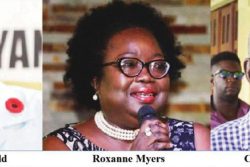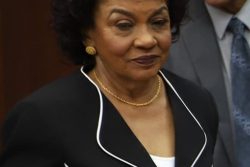QUITO (Reuters) – South American foreign ministers met in Ecuador yesterday to discuss broken ties between Venezuela and Colombia, with sparks likely over the two Andean nations’ clashing plans to fix a crisis over leftist rebels.
The gathering of the 12-member Union of South American Nations is the first encounter between the two governments since Venezuela’s socialist President Hugo Chavez severed relations last week over Bogota’s charges his country harbors Colombian guerrillas in comfortable camps.
Chavez then warned that close US ally Colombia was planning a military attack, and threatened to stop the OPEC nation’s oil supplies to the United States if that happened.
With Venezuela calling for peace talks to end decades of civil war in Colombia and Bogota saying its neighbor should help it fight the Marxist rebels instead, a solution to the crisis was unlikely yesterday.
“I really don’t have high expectations,” Colombian Foreign Minister Jaime Bermudez said before heading to Quito.
The rift is a headache for incoming Colombian President Juan Manuel Santos, who takes over from Alvaro Uribe on August 7 and has vowed to improve relations and revive billions of dollars in lost trade.
Uribe, a conservative who has increasingly spoken bluntly as his rule nears its end, hit out at regional heavyweight Brazil yesterday.
Brazil’s President Luiz Inacio Lula da Silva has offered to mediate in the dispute and said on Wednesday that patience was needed to resolve what he called a verbal conflict.
“The President deplores that President Luiz Inacio Lula da Silva of Brazil, with whom we have cultivated the best ties, refers to our situation with Venezuela as if it were a case of personal affairs,” Uribe’s office said in a statement.
Colombia had long sought a dialogue, it added, and the only solution was for Venezuela to stop tolerating the presence of “terrorists.”
The rift marks a new low in relations between two of Latin America’s most militarized and ideologically opposed nations. Chavez has seized on the alleged threat of an attack from Colombia to mobilize supporters ahead of Sept. 26 legislative elections in which his socialist party could lose seats as the economy struggles with recession.
Analysts say an armed conflict is unlikely and markets have shrugged off the latest row, with the Colombian peso performing strongly and Venezuela’s benchmark Global 2027 bonds stronger in the last week.
The meeting could indicate how much support Colombia has for pressuring Chavez to act on the Revolutionary Armed Forces of Colombia, or FARC, rebels it says launch raids from Venezuela. Venezuelan Foreign Minister Nicolas Maduro arrived in Quito after a seven-nation tour to drum up support for a “peace plan” that seeks to end Colombia’s decades-long war with the rebels, who are funded by the cocaine trade.
Colombia rejects that idea and instead wants Chavez to cooperate in destroying what it calls rebels’ “summer camps.”
“Colombia will insist that a concrete and efficient mechanism is needed to stop the FARC and the ELN being in Venezuela,” said Bermudez.
The National Liberation Army, or ELN, is a smaller Colombian rebel force that Bogota says also operates across the border.
Colombia last week presented satellite images, photos, maps and coordinates it said proved that some top rebel commanders were in a remote mountain range across the border.
Chavez, an outspoken US critic and standard-bearer of socialism in Latin America, called the presentation a hoax.
In 2008 Colombia bombed a FARC camp in Ecuador, killing top commander Raul Reyes. Relations in the Andean region have been tense ever since. Last year Chavez froze trade with Colombia after Uribe signed a deal allowing US troops access to seven military bases. Bilateral commerce is expected to drop as low as $1 billion in 2010, from nearly $7 billion in 2008.




